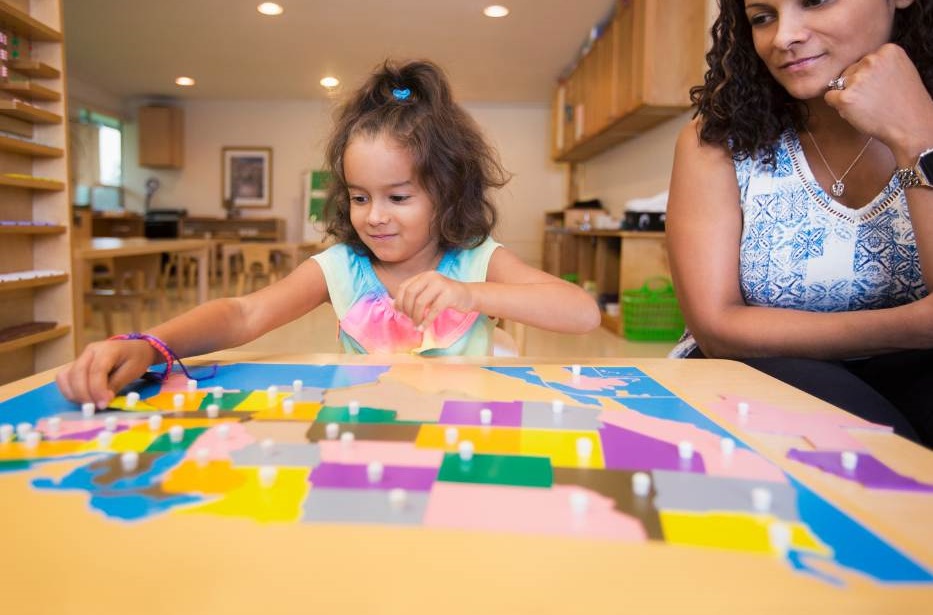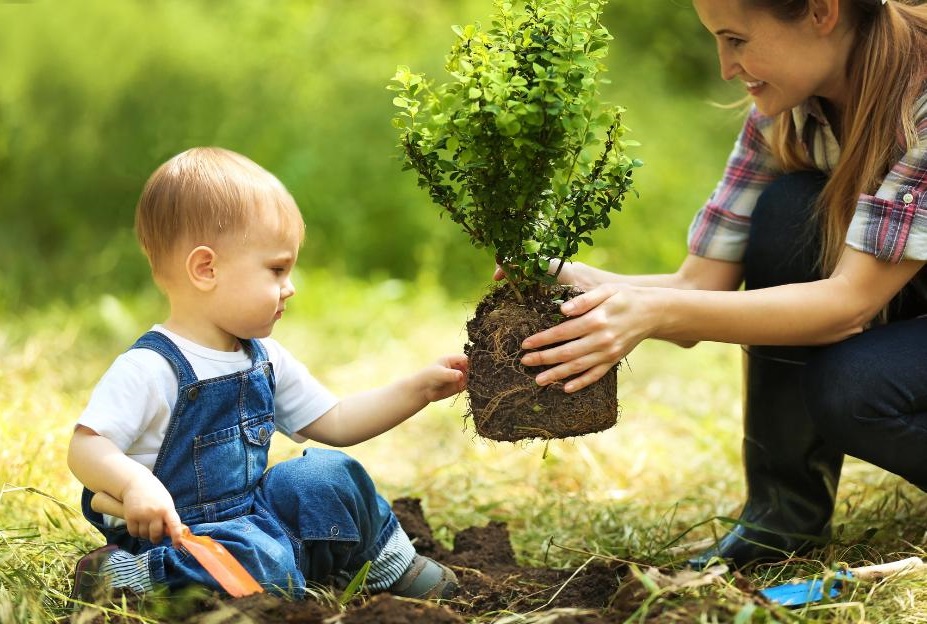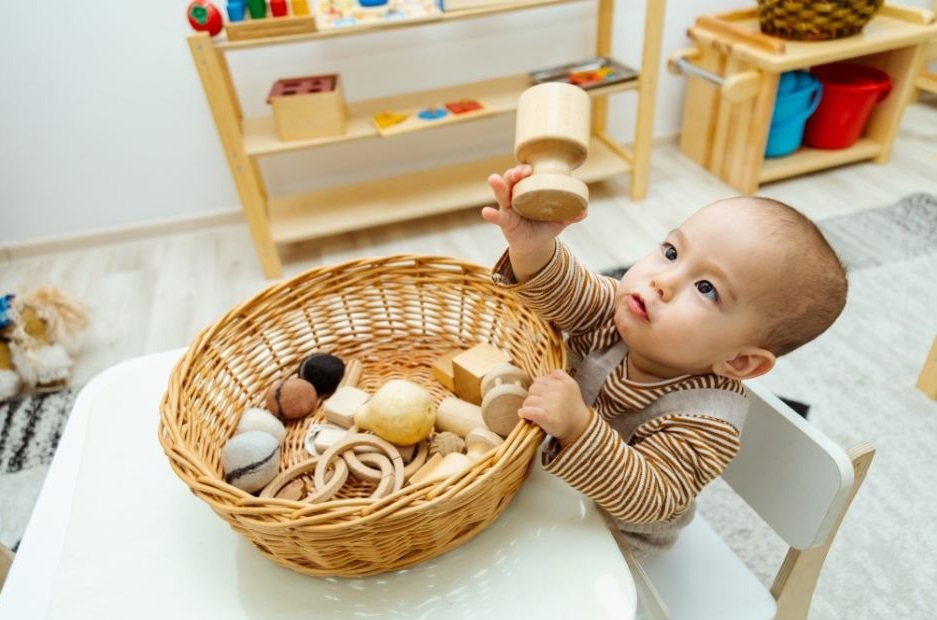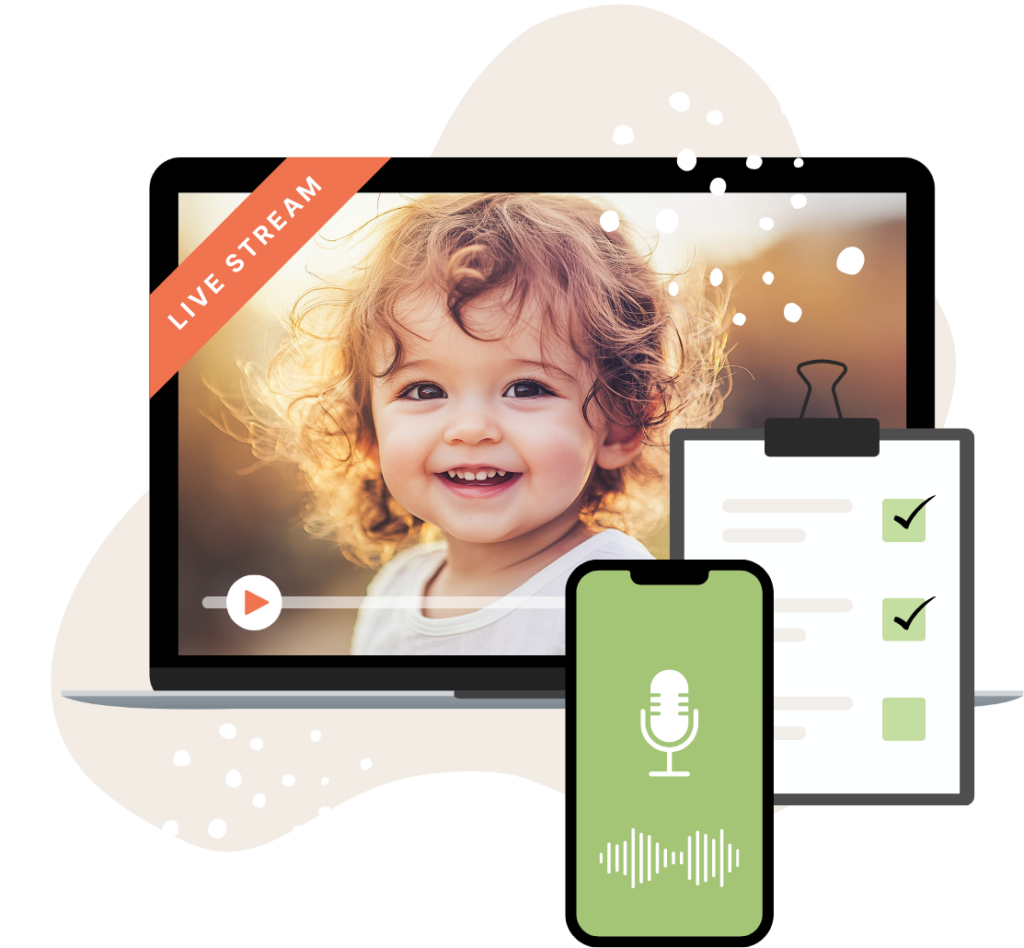As a Montessori parent or caregiver, it’s likely that you’ve heard others talking about observing their child or that you’ve been encouraged to do the same. You might find yourself confused about what observation has to do with helping your child. It just sounds so scientific, right?
Observation truly is a hallmark of the Montessori philosophy. It is a tool that provides us with important information necessary in order to better understand the child. In fact, Maria Montessori titled one of her earliest books The Discovery of the Child, revealing her notion that by observing children carefully and without judgment, the child’s true nature could be unveiled.
What is observation?
Observing simply means watching like a camera on the wall. It is paying careful attention to every detail. It is seeing without judgment or analysis. Observation requires no action other than watching.
As Simone Davies says, “Observation is a scientific way to look at the child… [It] is a tool for us to better understand [the] child, to transform ourselves to see the world through their eyes, and to be humble in looking how to support them in the best way.”
Although it may seem too good to be true, observation is as simple as taking a moment to pause and make note of what is happening around us.
5 Reasons to observe
- Observation allows us to see how a child behaves.
- We can also discover what the child knows.
- While observing, we can begin to better understand a child’s interests, their needs, and their abilities.
- It helps us identify when a developmental change is occurring.
- Occasionally, observation can help us see when we need to step in to set a limit or provide a little help before stepping out again.
What to observe
You might choose to focus on one area of development, for example, a child’s gross motor movement or their eating habits, and take note of everything you see in this area.
Or you may choose to keep a running record for a specific period of time, noting everything the child does and says.
If your child is demonstrating a challenging behavior such as biting, pushing, or throwing, you can also make this the focus of your observation in an attempt to determine if there are specific causes of the behavior such as hunger, tiredness, or the involvement of other children.
Here are some areas of a child’s development you may choose to observe:
- Fine and gross motor skills – Watch to see how children move their hands and fingers, how they hold and carry objects, how they make larger movements, how they sit, stand, and balance.
- Communication – Listen to the sounds, words, and sentences the child uses. Watch the gestures and facial expressions they use to communicate with others.
- Cognitive Development – Pay attention to what the child is learning, what they are working to master, and what they are showing interest in.
- Social Development – Observe how the child interacts with you, with other adults, and with other children. It can also be helpful to watch how they observe us and others, too.
- Emotional Development – Pay attention to what makes the child laugh, cry, become angry, frustrated as well as how the child expresses and communicates these emotions with others.
- Independence – Observe how the child performs tasks without assistance from others. Pay careful attention to what they do and say when they need help or support.
What to do with these observations
You’ve taken the time to observe your child, but now what? What do you do with this information?
Sometimes, the answer is nothing at all. Observation is just a reminder of where the child is on their developmental path.
Other times, it can be helpful to consider what you’ve observed and to decide one change you can make based on your noticings. Perhaps you’ve noticed that your child is repeatedly completing a puzzle on their shelf. You might introduce additional puzzles at the same level and at a slightly more advanced level in order to foster this interest and to allow continued development in this area. Maybe your child begins holding up objects to show them to you. This may be a cue that your child is in their sensitive period for language so you begin providing them real names for everything they encounter.
Explore the fundamentals of Montessori parenting with this free video by Sylvia Arotin, offering insights and strategies to empower and educate your child.
Putting it all together
Observation is such a simple, yet powerful tool. It might seem confusing or overwhelming at first, but start small. Try to step back and watch your child for a few minutes each day. We promise it will be worth it!






